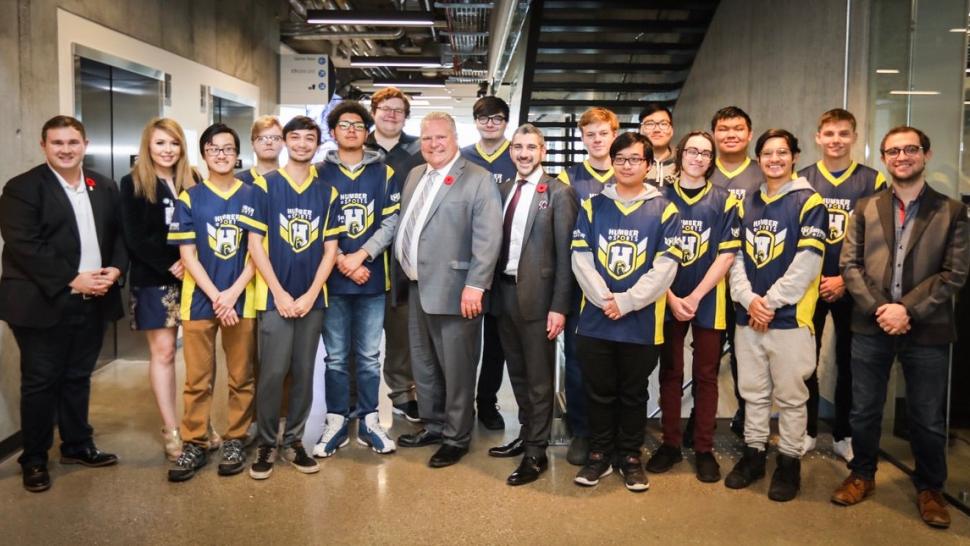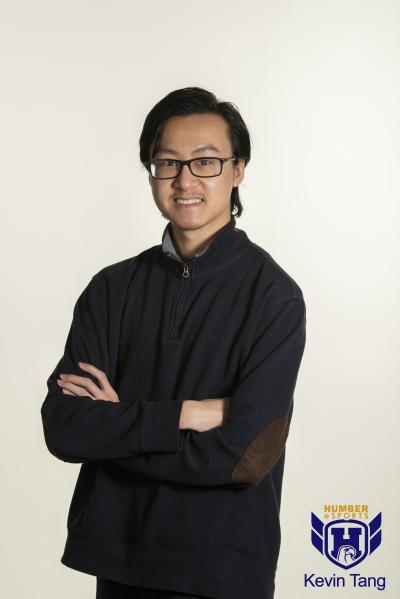
Photo taken prior to the COVID-19 outbreak
#HumberTogether: For the first two weeks of March leading up to the anniversary of campus closures due to COVID-19, Humber Today will publish stories showcasing the exceptional efforts of various departments, clubs and individuals over the last 365 days as part of a #HumberTogether Series.
Humber Esports’ approach to recruitment prior to the COVID-19 outbreak was decidedly low-tech.
“A large factor was just meeting people on campus and word of mouth. We put up posters and flyers,” said second-year Sports Management student Kevin Tang, Esports’ student coordinator.
“Last year, the pool we had to recruit from became smaller.”
Fortunately, Humber Esports had an existing lineup of strong, accomplished teams.
Most were able to train through the pandemic by scrimmaging and practicing online, instead of meeting up to play in person.
The Call of Duty team beat 15 other teams to win the Tespa Invitational tournament and more than $12,500 in total prize money over the summer. A few months later, Humber’s Counter-Strike team finished fourth at an American tournament. The CS team went into the season “very green,” according to Tang, but committed to researching, practicing and bonding, which translated into wins. 
Two more competitive players were each awarded $1,500 scholarships by the initiative, funded by local investment advisor Jon Ferrara, who donates to the scholarships each year.
Humber Esports also launched a successful new program.
“We added Rocket League to our roster, which Is cool because it’s free to play and that removes a few barriers,” said Jacqueline Manor, the director of the Esports initiative under the Faculty of Media & Creative Arts.
The launch comes at a good time. Prior to the pandemic and campus closures, players had access to training facilities onsite and some have struggled to find the resources to play at home.
Despite the challenges, the Humber Esports community remains tight knit.
Time well-spent
Some teams spend four hours online together every day of the week. Often, that includes quality time away from the competition.
“Sometimes they’ll ask each other for help on an assignment and hop on a call to work together. They’re with each other so much that they’re close,” said Tang.
One team even makes it a point to meditate together.
Humber Esports also recognizes that while teams require intense focus and trust between players, successful teams require strong leadership.
“Esports isn’t just about competitive players. The coaches matter just as much,” said Manor.
She is working with a consultant from Coach+ who comes from a traditional sports background to develop intensive coaching workshops.
“It’s been good at building resiliency, grit and leadership,” she said.
The initiative also offers opportunities for professional development and hosts Town Halls, showcasing speakers from various professions in the gaming world.
They’re popular and well-attended – virtually, of course.
The stories of industry professionals have resonated with students whose experiences in collegiate Esports have the potential to translate into meaningful careers.
Follow Humber Esports’ Instagram page to learn more about the initiative.